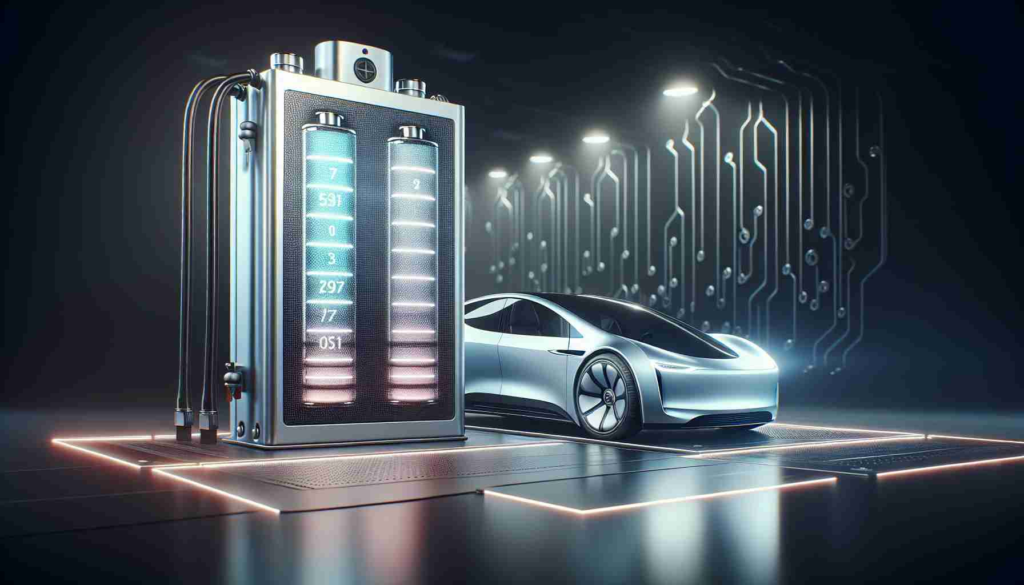
In a significant development in the electric vehicle (EV) industry, advanced battery technology is setting the stage for major leaps in EV performance and sustainability. These innovative batteries are key to overcoming previous obstacles to electric transportation, such as limited range and long charging times, which have historically hindered widespread adoption.
The industry is nearing a technology renaissance and is full of excitement. Solid-state and lithium-sulfur batteries are at the forefront of this revolution, giving EVs the potential to travel further on a single charge and replenish energy faster than ever before. Additionally, these batteries are expected to have a much smaller environmental footprint.
What is particularly noteworthy about these emerging technologies is their ability to scale efficiently and their focus on recyclability. This approach, with its emphasis on reducing development costs, is both economically and environmentally beneficial. The surge in investment and government support is consistent with this vision and is expected to make electric vehicles an even more attractive option for consumers.
Tesla is one of the industry leaders driving innovative battery technology that is transforming the driving experience and setting new standards for competitors. Challenges such as raw material sourcing and charging infrastructure development still exist, but with ongoing research and increased production capacity, these issues are expected to be gradually resolved.
As the EV industry advances rapidly, the focus remains on fostering a sustainable and responsible transportation ecosystem with electric vehicles at its core. As a result, what was once an alternative mode of transportation is rapidly becoming the basis for a new era of green mobility.
Advances in EV battery technology
The electric vehicle (EV) industry is undergoing a transformation, driven primarily by advances in battery technology. New battery designs such as solid-state batteries and lithium-sulfur batteries offer significant improvements over traditional lithium-ion batteries. Solid-state batteries, for example, do not contain flammable liquid electrolytes, resulting in higher energy density, faster charging times, and increased safety. Lithium-sulfur batteries, on the other hand, promise higher energy density and lower costs, but both technologies still face hurdles in terms of longevity and manufacturing scalability.
Market forecast
Rapid advances in EV battery technology are expected to significantly expand the EV market. Market research predicts significant growth in the coming years, with annual sales potentially reaching millions of units worldwide. This surge is expected as batteries become more reliable and affordable, significantly reducing the total cost of ownership for EVs. As power grid infrastructure improves and renewable energy sources become more prevalent, EV operations are expected to become more sustainable, further driving market expansion.
industry issues
The industry must address several pressing issues, including the ethical and environmental impacts of extracting battery raw materials such as cobalt and lithium. Market expansion depends on addressing these concerns transparently and effectively. Additionally, the demand for more robust and widely accessible charging networks is essential to support the growing number of EV drivers.
Another challenge lies in the proper recycling of used batteries. As EVs become more popular, so does the need for sustainable recycling systems to dispose of batteries at the end of their lifecycle. Innovation in this area is essential to minimizing waste and recovering valuable materials.
impact of progress
Improved battery technology will not only increase consumer confidence in EVs; They are also critical to achieving environmental goals. With more efficient batteries, EVs can achieve longer ranges and reduce emissions per mile. Additionally, when combined with green energy sources, the environmental footprint of these vehicles is further reduced.
Incumbent companies like Tesla are working hard to push the boundaries of battery technology and production, thereby reshaping the consumer experience. However, emerging startups and traditional automakers are also making strides, creating a competitive and dynamic industry environment.
As the global commitment to environmental sustainability intensifies, the focus on developing a cleaner transport sector is becoming more prominent. Electric vehicles are poised to play a central role in this transition, and advanced batteries will be the catalyst for this significant change in the automotive industry.
To learn more about the electric vehicle industry and market forecasts, consider visiting websites like Bloomberg and the International Energy Agency, which provide reliable market analysis and data.

Igor Nowacki is a fictional author known for his imaginative insights into futuristic technology and speculative science. His writings often explore the boundaries of reality, blending fact and fantasy to envision breakthrough inventions. Nowacki’s work is praised for its creativity and ability to make readers think beyond the limits of current technology and imagine a world where the impossible is possible. His articles combine his science fiction with visionary technology predictions.

